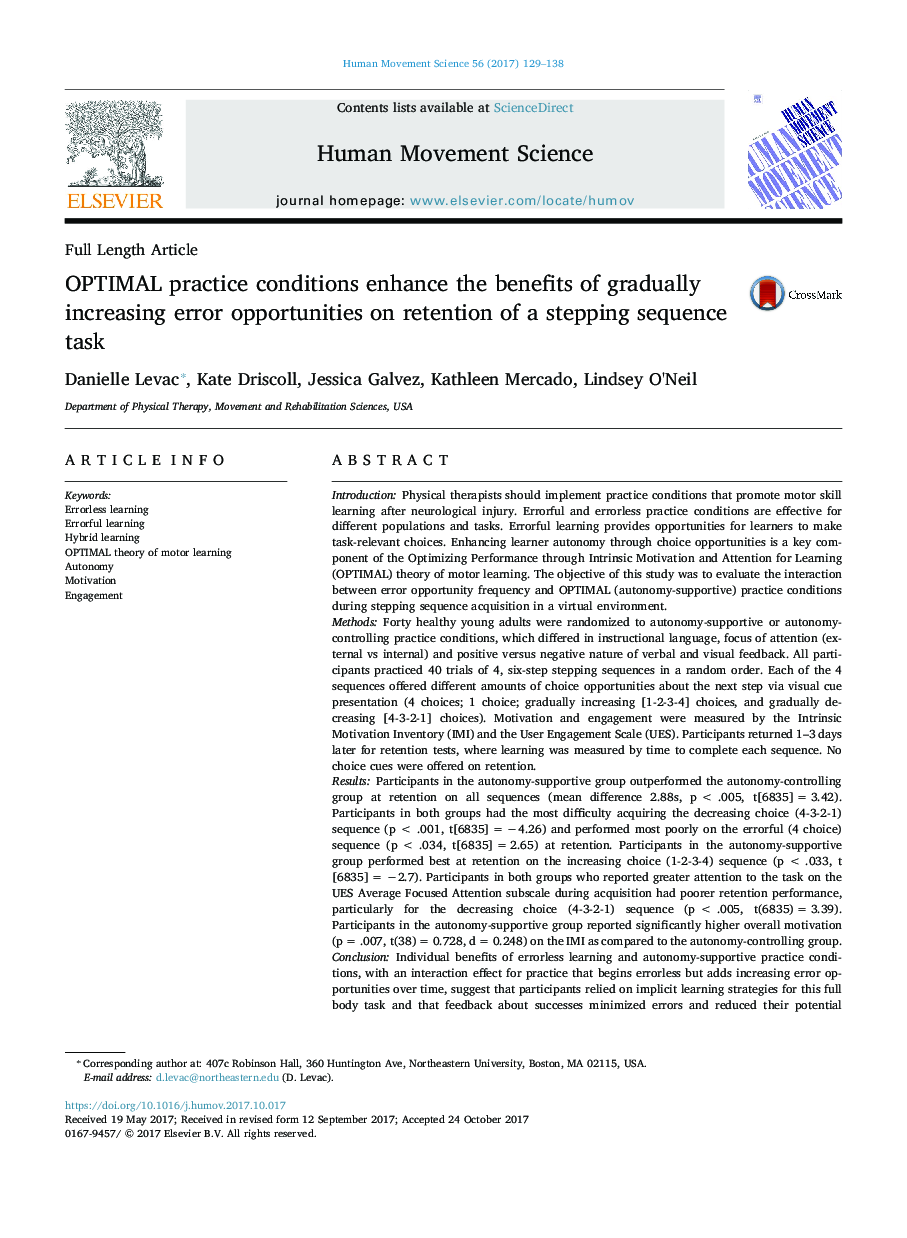| Article ID | Journal | Published Year | Pages | File Type |
|---|---|---|---|---|
| 7291047 | Human Movement Science | 2017 | 10 Pages |
Abstract
Individual benefits of errorless learning and autonomy-supportive practice conditions, with an interaction effect for practice that begins errorless but adds increasing error opportunities over time, suggest that participants relied on implicit learning strategies for this full body task and that feedback about successes minimized errors and reduced their potential information-processing benefits. Subsequent work will continue to examine how assigning a positive versus a negative quality to error provision influences the benefits of errorful learning in a variety of tasks.
Related Topics
Life Sciences
Neuroscience
Cognitive Neuroscience
Authors
Danielle Levac, Kate Driscoll, Jessica Galvez, Kathleen Mercado, Lindsey O'Neil,
